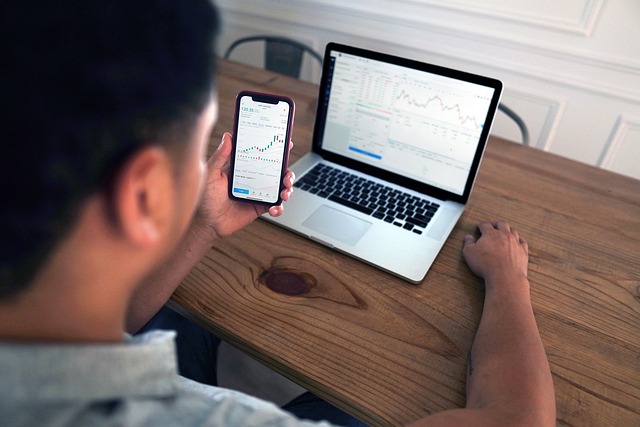Is Future Trading Halal or Haram? A 2025 Perspective
Author: Jameson Richman Expert
Published On: 2025-07-30
Prepared by Jameson Richman and our team of experts with over a decade of experience in cryptocurrency and digital asset analysis. Learn more about us.
In recent years, especially as we approach 2025, the debate over whether futures trading aligns with Islamic law (Shariah) has gained significant traction among Muslims worldwide. This discussion is rooted in the fundamental principles of Islamic finance, which prohibit *gharar* (excessive uncertainty), *maysir* (gambling), and *riba* (interest). Many Muslim traders and investors seek clarity on whether engaging in futures contracts is permissible, given their complex structures and varying purposes. As an experienced trader and Islamic finance enthusiast, I have explored this topic extensively, undergoing a journey of trial, error, and scholarly consultation to understand the nuanced relationship between futures trading and Islamic law.

Understanding Futures Trading: Basic Concepts and Market Appeal
Futures trading involves entering into legally binding agreements to buy or sell an underlying asset—such as commodities, currencies, or financial instruments—at a predetermined price on a future date. These contracts are versatile tools used for multiple strategic purposes: risk management (hedging), speculation, and price discovery. The appeal of futures markets stems from their high liquidity, leverage capabilities, and the ability to hedge against volatile market movements. Traders often leverage their positions, controlling larger amounts of assets with a relatively small capital outlay, which amplifies both potential gains and risks. However, these features introduce complexities from an Islamic perspective, especially since they can resemble gambling or speculative behaviors that may involve *gharar* and *maysir*. Therefore, understanding the nature and purpose behind each futures contract is crucial to assess its permissibility.
Core Islamic Principles and Their Relevance to Futures
Islamic jurisprudence emphasizes fairness, transparency, and the avoidance of *gharar* (excessive uncertainty), *maysir* (gambling), and *riba* (interest). When analyzing futures contracts, scholars examine several key elements:
- *Gharar*: Excessive ambiguity or uncertainty about the contract’s terms, the underlying asset’s future value, or potential outcomes. Contracts with high *gharar* risk unjust enrichment or exploitation, violating the principles of fairness and justice in Islamic law.
- *Maysir*: Engaging in speculative practices that resemble gambling, where profits are derived primarily from chance rather than productive economic activity. High leverage, short-term speculation, and unpredictable market movements often raise concerns related to *maysir*.
- *Riba*: Earning or paying interest, which is explicitly prohibited in all financial transactions in Islam. While futures contracts are typically asset-based, derivatives involving interest rate swaps, margin financing, or financing with interest elements may violate this principle.
To determine whether futures trading is permissible, each contract must be evaluated to ensure it minimizes or eliminates these elements. For instance, futures used for genuine hedging—such as a farmer locking in prices for a harvest—are viewed differently from speculative trades aimed solely at profit without underlying economic backing. This distinction is vital because hedging aligns with the Islamic principle of risk sharing and economic transparency, whereas speculation often entails unjust enrichment and excessive uncertainty.
Scholarly Perspectives and Fatwa Considerations
Islamic scholars and fatwa-issuing bodies have offered diverse opinions regarding futures trading. Their assessments hinge on the contract’s purpose, structure, and context of use:
- Futures employed for hedging purposes, with transparent and well-defined terms, are generally considered permissible, provided they do not involve *gharar* or *maysir*.
- Speculative futures trading—especially when high leverage, short-term bets, or gambling-like behaviors are involved—is widely regarded as *haram* because it resembles *maysir* and promotes unjust enrichment.
- Contracts involving essential commodities like gold, wheat, or oil, which are traded in real markets and structured properly, can be permissible if they avoid excessive uncertainty and unjust enrichment. Such contracts should be based on actual delivery or backed by tangible assets to ensure compliance.
The key factor influencing permissibility is the *intention* behind the transaction, along with contractual clarity and fairness. Engaging with Shariah-compliant financial products, such as those structured through Islamic banks or financial institutions, and seeking guidance from qualified Islamic scholars and fatwa councils ensures compliance with Islamic principles. Continuous scholarly dialogue and evolving jurisprudence are essential to adapt to financial innovations while safeguarding Islamic ethics.

Practical Steps for Islamic-Compatible Futures Trading
To align futures trading with Islamic law, traders should adhere to the following guidelines:
- Purpose: Prioritize hedging or genuine investment activities over pure speculation. The primary goal should be risk mitigation aligned with real economic interests, such as safeguarding agricultural produce, energy supplies, or currency risks.
- Transparency: Use contracts with clear, explicit terms to avoid *gharar*. Vague or ambiguous conditions—such as uncertain delivery dates or unspecified quantities—can render the contract impermissible.
- Leverage Management: Limit or avoid high leverage to prevent speculative behavior that resembles gambling and to reduce exposure to market volatility. Proper leverage controls help ensure the transaction’s alignment with Islamic risk-sharing principles.
- Platform Selection: Choose trading platforms that offer Islamic trading accounts or Shariah-compliant derivatives. Leading platforms such as Binance, MEXC, Bitget, and Bybit are increasingly integrating Shariah-compliant options, including interest-free margin accounts and ethically structured derivatives.
- Continuous Education and Scholarly Consultation: Regularly update your knowledge about Islamic finance standards and consult qualified Islamic scholars or Shariah advisory boards for guidance. This proactive approach helps ensure ongoing compliance as markets evolve.
The Role of Modern Islamic Financial Products and Innovations
Innovations within Islamic finance are gradually creating derivatives that mimic conventional futures while adhering to Shariah principles. These include structures based on Murabaha (cost-plus financing), Salam (forward contracts), and Ijarah (leasing). Such instruments aim to reduce *gharar* and *maysir* by providing more transparent, ethically grounded alternatives. For example, Islamic forward contracts structured on tangible assets—like commodities or real estate—offer a means of risk transfer without compromising Islamic ethics.
Moreover, technological advances—especially blockchain technology and smart contracts—are enhancing transparency, security, and compliance. Blockchain-based platforms can automate contractual obligations, verify asset ownership, and record transactions immutably, thereby minimizing ambiguity and potential disputes. These innovations are pivotal in developing Islamic futures markets that are more aligned with Islamic ethics, reducing uncertainty and speculative excesses by 2025, and expanding permissible trading options.
Risks and Ethical Considerations for Future Traders
Despite structured approaches, futures trading inherently involves risks such as market volatility, leverage-related risks, and potential manipulative practices. Ethical trading necessitates discipline, patience, and adherence to Islamic morals such as honesty, fairness, and social responsibility. Practices like market manipulation, spreading false information, or engaging in over-leverage are not only financially risky but also violate Islamic ethics. Responsible trading should focus on supporting the real economy, avoiding harm, and contributing positively to society, aligning investments with Islamic values.
Additionally, traders should be aware of the social impact of their activities. Excessive speculation can lead to market distortions, price manipulation, and economic instability, which are discouraged in Islam. Emphasizing ethical investment principles ensures that futures trading supports sustainable development and social justice.

Conclusion and Forward Look for 2025
In summary, the permissibility of futures trading within Islamic law depends critically on the purpose, structure, and manner of execution. Properly structured, transparent, and purpose-driven futures trading can be deemed permissible—particularly when used for hedging and risk management rather than for speculative gambling. As 2025 approaches, ongoing scholarly research, innovative Shariah-compliant financial products, and technological progress are likely to expand the scope of Islamic-compatible trading. Muslim traders are encouraged to pursue continuous education, consult trusted scholars regularly, and utilize Shariah-compliant platforms to ensure their investments align with their faith while capitalizing on market opportunities.